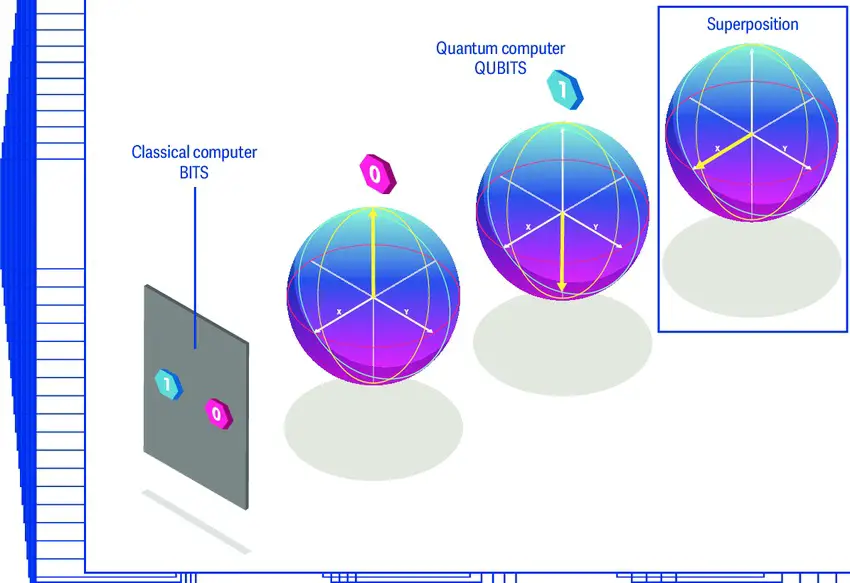The world of computing is on the verge of a major breakthrough—quantum computing. Unlike traditional computers, which process information using bits (0s and 1s), quantum computers use qubits, allowing them to perform complex calculations at unprecedented speeds.
In this guide, we’ll explore how quantum computing works, its real-world applications, and why it will transform industries like AI, cybersecurity, and healthcare.
What is Quantum Computing?
How Quantum Computers Work
Traditional computers rely on binary bits (0s and 1s) to process data. Quantum computers, however, use qubits, which leverage two key principles:
- Superposition – A qubit can be both 0 and 1 simultaneously, exponentially increasing computing power.
- Entanglement – When qubits are entangled, changing the state of one instantly affects the other, enabling faster data processing.

How Will Quantum Computing Revolutionize Tech?
Quantum computing is expected to disrupt multiple industries by solving complex problems that are impossible for classical computers.
1. Advancing Artificial Intelligence & Machine Learning
Quantum algorithms can train AI models exponentially faster, leading to breakthroughs in natural language processing, self-driving cars, and deep learning.

2. Breaking & Reinventing Cryptography
Quantum computers could crack traditional encryption used in banking and cybersecurity. However, quantum encryption (quantum key distribution – QKD) will make data unhackable.

3. Revolutionizing Drug Discovery & Healthcare
Quantum simulations can analyze molecular structures, speeding up the development of new drugs and personalized medicine.

4. Optimizing Financial Markets
Banks and hedge funds will use quantum computers to analyze stock trends and financial risks in real-time, improving predictions and fraud detection.

Challenges & Future of Quantum Computing
Despite its potential, quantum computing faces challenges such as:
High error rates – Qubits are unstable and require extreme cooling.
Scalability issues – Building large-scale quantum computers is complex.
Cost barriers – Current quantum computers are expensive and limited to research labs.
🚀 The Future: Tech giants like IBM, Google, and Microsoft are investing billions to make quantum computing mainstream.
Learn more about quantum computing at IBM Quantum Research.
Conclusion
Quantum computing is not just a futuristic concept—it’s on the verge of transforming industries, AI, security, and finance. While challenges remain, the progress in quantum research suggests that in the next decade, quantum computing will be a mainstream technology shaping the future.
Stay tuned, because the quantum revolution has just begun! 🚀
Want to chat? CONTACT US HERE!




